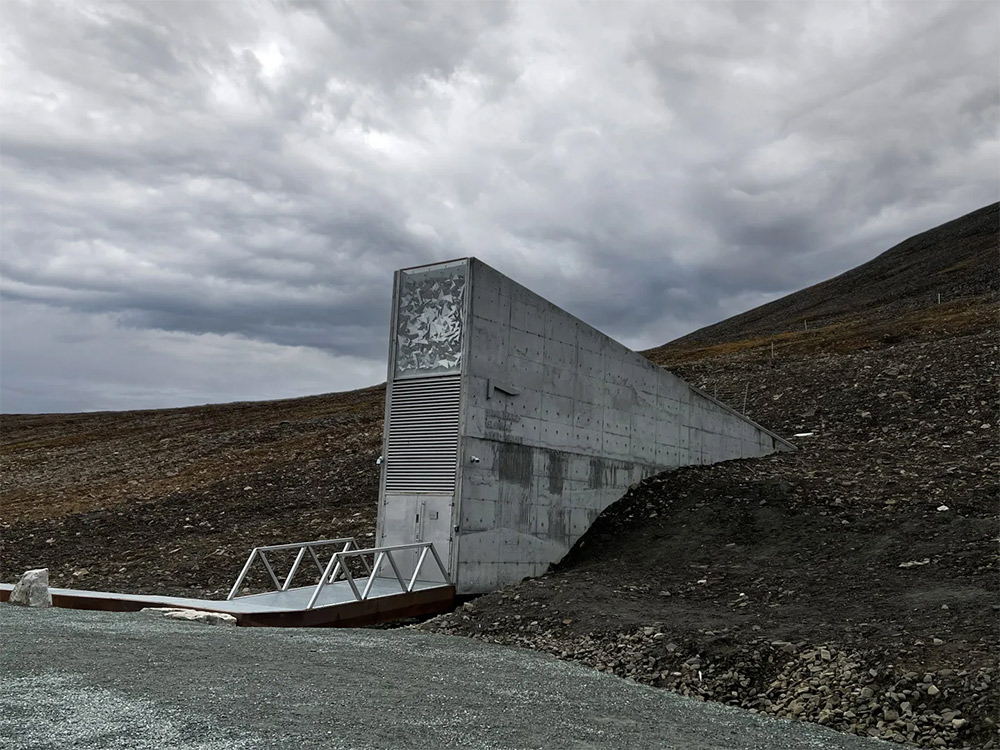
挪威政府周二签署了一项开始储备粮食的协议,称因为新冠疫情、欧洲战争和气候变化,有必要储备粮食。
挪威农业和食品部长盖尔·波勒斯塔德、财政部长吕格弗·斯洛格斯沃尔·韦杜姆和四家私营公司签署了在2024年和2025年储存3万吨粮食的协议。这些小麦将归挪威政府所有,由这些公司储存在全国各地的现有设施中。其中三家公司今年将储存至少1.5万吨小麦。
挪威政府表示,这些公司“可自由投资新设施,自行决定在何处储存应急粮食,但它们必须在需要时向国家提供这些粮食”。
挪威农业和食品部表示:“建立应急粮食储备就是要为难以想象的情况做好准备。”
斯洛格斯沃尔·韦杜姆表示:“在国际贸易体系出现重大混乱或国内产能不足的情况下,应该有额外的安全保障。这是政府加强国家备灾工作的重要举措之一。”
挪威将在未来几年签署更多储备合同,目标是在2029年前建立储备。波勒斯塔德对挪威NRK广播公司表示,政府的目标是在这个十年结束前储备约8.25万吨粮食,“使挪威在可能出现危机的情况下,拥有足够满足本国人口三个月消耗的粮食。”
挪威有560万人口。
去年,这个斯堪的纳维亚国家表示每年将花费6,300万克朗(600万美元)用于储备粮食。
挪威曾在20世纪50年代储备粮食,但在2003年决定不再需要粮食储备后关闭了储备点。
然而,在2022年俄乌冲突爆发后,挪威成立了一个委员会,对其应急准备系统的优缺点进行评估。该委员会建议储备粮食产品。
挪威石油资源丰富,还在距离北极约1,300公里(800英里)的斯瓦尔巴群岛建立了全球种子库(Global Seed Vault)。
自2008年以来,世界各地的基因库和组织已将近100万份种子样本存放在全球种子库中,作为其现有收集到的种子备份,以防发生人为或自然灾害。
挪威政府资助了种子库的建造费用,一个国际非营利组织支付运营费用。(财富中文网)
翻译:刘进龙
审校:汪皓
挪威政府周二签署了一项开始储备粮食的协议,称因为新冠疫情、欧洲战争和气候变化,有必要储备粮食。
挪威农业和食品部长盖尔·波勒斯塔德、财政部长吕格弗·斯洛格斯沃尔·韦杜姆和四家私营公司签署了在2024年和2025年储存3万吨粮食的协议。这些小麦将归挪威政府所有,由这些公司储存在全国各地的现有设施中。其中三家公司今年将储存至少1.5万吨小麦。
挪威政府表示,这些公司“可自由投资新设施,自行决定在何处储存应急粮食,但它们必须在需要时向国家提供这些粮食”。
挪威农业和食品部表示:“建立应急粮食储备就是要为难以想象的情况做好准备。”
斯洛格斯沃尔·韦杜姆表示:“在国际贸易体系出现重大混乱或国内产能不足的情况下,应该有额外的安全保障。这是政府加强国家备灾工作的重要举措之一。”
挪威将在未来几年签署更多储备合同,目标是在2029年前建立储备。波勒斯塔德对挪威NRK广播公司表示,政府的目标是在这个十年结束前储备约8.25万吨粮食,“使挪威在可能出现危机的情况下,拥有足够满足本国人口三个月消耗的粮食。”
挪威有560万人口。
去年,这个斯堪的纳维亚国家表示每年将花费6,300万克朗(600万美元)用于储备粮食。
挪威曾在20世纪50年代储备粮食,但在2003年决定不再需要粮食储备后关闭了储备点。
然而,在2022年俄乌冲突爆发后,挪威成立了一个委员会,对其应急准备系统的优缺点进行评估。该委员会建议储备粮食产品。
挪威石油资源丰富,还在距离北极约1,300公里(800英里)的斯瓦尔巴群岛建立了全球种子库(Global Seed Vault)。
自2008年以来,世界各地的基因库和组织已将近100万份种子样本存放在全球种子库中,作为其现有收集到的种子备份,以防发生人为或自然灾害。
挪威政府资助了种子库的建造费用,一个国际非营利组织支付运营费用。(财富中文网)
翻译:刘进龙
审校:汪皓
COPENHAGEN, Denmark (AP) — The Norwegian government on Tuesday signed a deal to start stockpiling grain, saying the COVID-19 pandemic, a war in Europe and climate change have made it necessary.
The deal to store 30,000 tons of grain in 2024 and 2025 was signed by agriculture and food minister Geir Pollestad, finance minister Trygve Slagsvold Vedum and four private companies. The wheat, which will belong to the Norwegian government, will be stored in already existing facilities by the companies in facilities across the country. Three of the companies will store at least 15,000 tons this year.
Companies “are free to invest in new facilities and decide for themselves where they want to store the emergency grain, but they must make the grain available to the state if needed,” the government said.
Norway’s ministry for agriculture and food said, “the building up of a contingency stock of food grains is about being prepared for the unthinkable.”
“There should be an extra level of security in the event of major disruptions in the international trade systems or failure of national production,” Slagsvold Vedum said. “This is an important part of the government’s work to strengthen national preparedness.”
Norway will sign further stockpiling contracts in the coming years, with the goal of building up the reserve until 2029. The aim is to have some 82,500 tons of grain in storage by the end of the decade “so that we then have enough grain for three months’ consumption by Norway’s population in a crisis situation that may arise,” Pollestad told Norwegian broadcaster NRK.
Norway has 5.6 million people.
Last year, the Scandinavian nation said it would spend 63 million kroner ($6 million) per year on stocking up on grain.
Norway had stored grain in the 1950s but closed down its storage sites in 2003 after deciding they were no longer needed.
However, following Russia’s 2022 invasion of Ukraine, Norway set up a commission to evaluate the strengths and weaknesses of its emergency preparedness systems which recommended stockpiling grain products.
The oil-rich country, which has supported Ukraine, also houses the Global Seed Vault in its Svalbard archipelago, some 1,300 kilometers (800 miles) from the North Pole.
Since 2008, gene banks and organizations around the world have deposited nearly 1 million samples of seeds at the vault to back up their own collections in case of human-caused or natural calamities.
The Norwegian government funded the construction cost, while an international nonprofit organization pays for operational costs.






